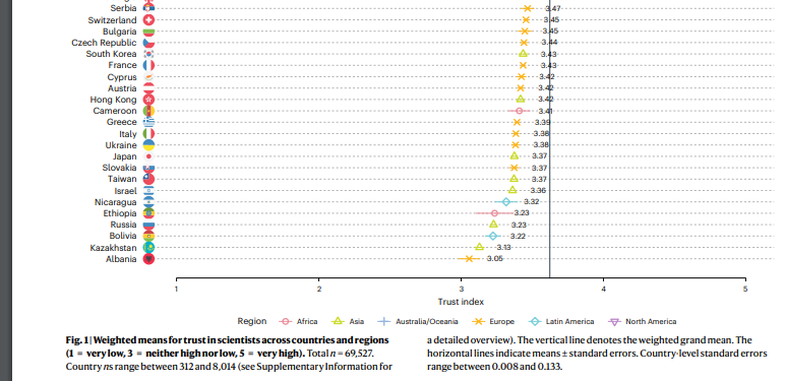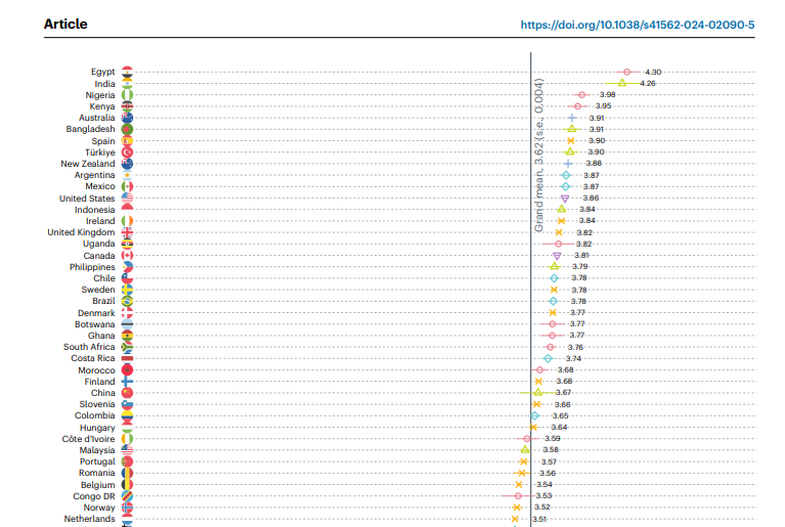
A study conducted in 68 countries around the world, including Albania, shows how much different people trust science. The research was published in the journal Nature Human Behaviors and 71,922 people participated in the survey. The study provides the largest global collection of data on trust in scientists since the Covid-19 pandemic.
As it turns out, most people in the world have relatively high trust in scientists: the average level of trust across all countries is 3.62 (on a scale of 1 being very low trust and 5 being very high trust). But this does not apply to Albania.
Albania last on the list
Our country is ranked last on the list in terms of trust in science, as can be seen in the graph below.
Citizens show the least trust in scientists in Ethiopia, Russia, Bolivia, Kazakhstan and finally Albania (3.05).

On the other hand, Egypt tops the list (4.30) as the country with the highest trust in science, followed by India, Nigeria, Kenya and Australia.

Respondents believe that scientists are capable of conducting high-impact research (78%), are accurate (57%), and care about people's well-being (56%). 52% of respondents believe that scientists should be more involved in the policy-making process. Also, 75% believe that scientific research methods are the best way to find out whether something is true or false.
However, less than half of respondents (42%) believe that scientists pay attention to the opinions of others. Furthermore, 83% want scientists to communicate science to the public. The findings also show that many people in many countries feel that science's priorities do not always align with their own.
Respondents would like to see high priority given to research related to improving public health, solving energy problems, and reducing poverty. Instead, they do not prioritize research on developing defense and military technology, and believe that science prioritizes these two areas more than they would like.
Suggested articles:





